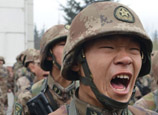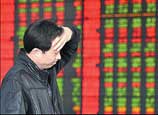
Wu Xinxiong, 64, appointed China's new energy chief on Monday, will face challenges that include meeting the country's surging energy demand and advancing sluggish energy mechanism reforms.
Wu replaces 59-year-old Liu Tienan as head of the new National Energy Administration, formed last week by absorbing the State Electricity Regulatory Commission, or SERC.
The new energy chief of the world's biggest energy consumer will also serve as deputy director of the National Development and Reform Commission, China's economic planning agency.
He had been chairman of the minister-level SERC since June 2011, and prior to that was governor of Jiangxi province.
Media reports have suggested that the central government was considering the creation of an energy "super" ministry.
Though the new energy administration remains a vice-ministerial level agency under the NDRC, Wu's position as a minister-level official will allow him to leverage more resources for promoting reform, said analysts.
"The aim is to streamline and downsize government agencies. Whether there is an energy ministry or not, the major obstacles facing the energy sector should be solved," said Li Zuojun, deputy director of the Development Research Center of the State Council.
The reorganized energy administration is set to focus on strategy planning, optimizing energy infrastructure and energy pricing reform.
A priority for the new energy chief will be to further adjust China's energy structure and boost new energy development, said Li.
Coal still holds a dominant share of China's energy mix, and the country is under great pressure to cut emissions. It also faces pressure on its energy security, with reliance on imported energy sources continuing to rise.
China's increasing dependence on imported oil has threatened the country's energy security, experts have said.
That dependence is expected to reach 59.4 percent in 2013, according to a recent report released by the Economics and Technology Research Institute of China National Petroleum Corp.
Reform of the energy pricing system should be another focus, Li said.
Regulators, not market forces, have played a key role in pricing, and as a result, energy prices have failed to reflect the true cost of energy supplies.
"Undoubtedly, a big challenge facing the pricing mechanism reform is how to tackle the vested interests against reform," said Li.
High expectations have also been placed on Wu to push forward reform of China's power system.
A plan to split the State Grid Corp of China, China's biggest power transmission company, is under consideration, the Jinan Daily reported on Tuesday, citing sources close to policymakers.
The reform aims to break the monopoly and lower operational costs.
Post-reform, China is expected to have six regional grid companies, said the report.
The State Grid's 2012 revenue was 1.88 trillion yuan ($303 billion), ranking its seventh on the Fortune Global 500 ranking of companies.
The NDRC has increased electricity prices twice since 2011, and analysts said the State Grid's profits had improved.
However, the price increases have done little to improve operational efficiency.
Wu may also encounter administrative pressures from within the organization, such as on staffing and what internal integration will have to take place.
"It will also be challenging to coordinate with external administrative agencies and big State-owned enterprises that have overlapping functions," Li said.
Zhou Dadi, former director of China's Energy Research Institute under the National Development and Reform Commission, also highlighted the urgency to implement a green development strategy.
"The slowing economic growth rate has offered an opportunity to update China's energy infrastructure toward a more efficient and low carbon model.
"Also, many major energy construction projects need to be considered to reduce the risk of overcapacity," said Zhou.
















 Seeking a dream wedding at Beijing Wedding Expo
Seeking a dream wedding at Beijing Wedding Expo


![]()
